File Explorer helps you find your files and folders, but sometimes it seems like it’s missing them. While the files are there because they can be accessed from the command line, Explorer may not show them!
Files and Folders disappeared on Windows PC
If you face this issue, you can do a few things to fix this, but before that, make sure you are in the right folder. Files not showing and Files not available are two things. The first is the File Explorer problem, while the second is where the files are actually missing.
If the files are missing, follow our guide on recovering files if you just deleted them.
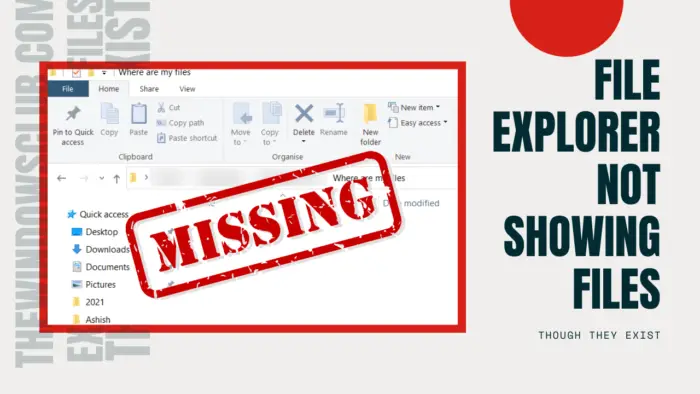
File Explorer not showing files though they exist
If Files and Folders have disappeared and you cannot see a file in File Explorer even though you know they exist, follow these steps to resolve this issue in Windows 11/10:
- Use Refresh
- Restart File Explorer
- Clear Icon Cache
- Check if files are hidden.
- Repair system files.
- Run ChkDsk.
You will need admin permission for one of these steps.
1] Use Refresh
When you open a folder in File Explorer, it may take time to load, depending on the number of files. While this is not a problem on SSDs, it can be a problem if you are loading it from the old hard disk.
You can either wait, right-click an empty spot in Explorer, choose Refresh, or press the F5 button on the keyboard. Sometimes, the process gets stuck because of too many files, and a refresh should help.
2] Restart File Explorer
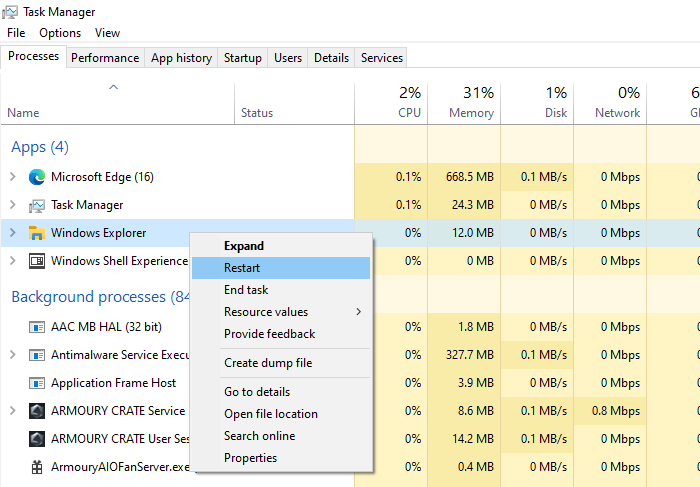
If Refresh doesn’t help, and it’s taking more than expected, then it’s best to restart the File Explorer.
You can use Ctrl + Shift + Esc or Alt+Ctrl+Del to open Task Manager, which will show a list of current programs running on Windows. Notice “Windows Explorer” is listed and must be not-responding. Right-click on it, and choose to Restart.
3] Clear Icon Cache
![]()
When files are loaded from a folder, it also loads up the icons, which is why you can quickly identify the file types. Windows maintains a cache for these files, so when it opens any folder, it doesn’t take time to display the icons and images of file types. However, if this icon cache is corrupt or missing, then loading will take time.
We suggest to Rebuild Icon Cache to resolve problems related to this. You may use our freeware Icon Cache Rebuilder to do it easily.
4] Check if files are Hidden
Windows 11
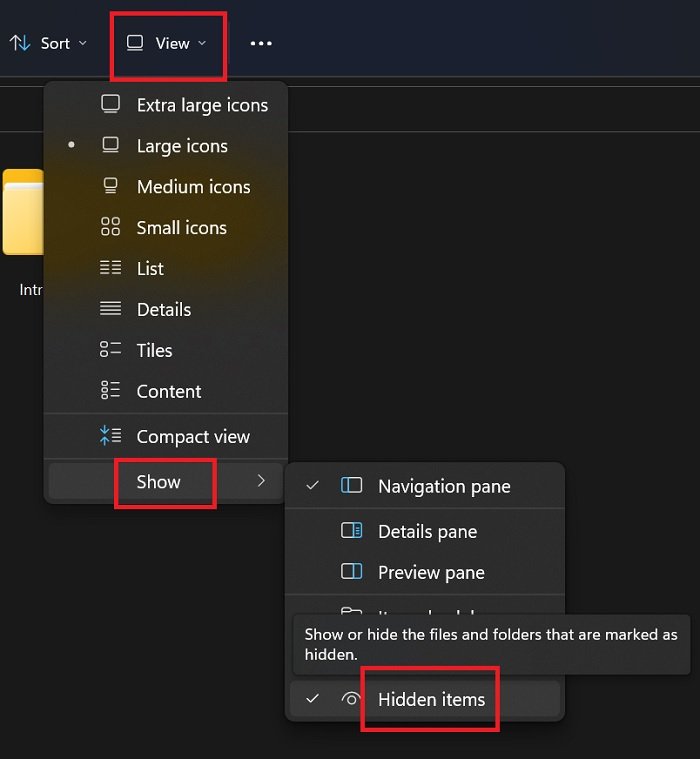
Since File Explorer has changed significantly with Windows 11, a lot of users would find it confusing to find options which they were aware of earlier. To check hidden files in File Explorer, the procedure is as follows:
- Open the File Explorer window.
- Click on the downward-pointing arrow associated with the View tab.
- Click on Show which is the last option in the list. Another list will pop up.
- Check the box associated with Hidden Items.
Windows 10
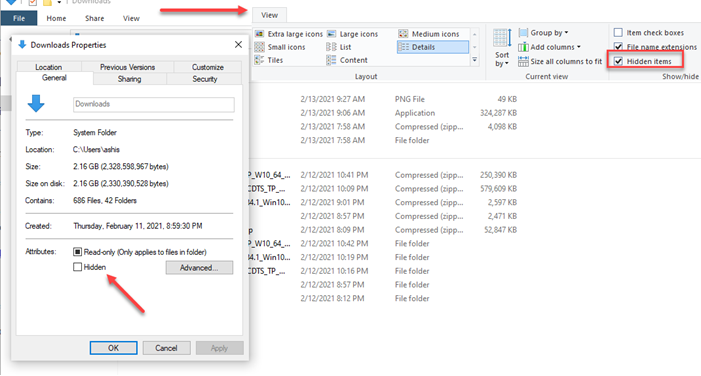
When you are inside the folder, click on view, and check the box that says— Hiden items. If the folders were marked as hidden, they would be visible now. They will look different from the regular folders, but you will be able to access and all the files inside them.
If you want to unhide those folders, then select the parent folder, and go to properties. Uncheck the box which is marked as hidden. When prompted, apply it to all files and folders inside it.
5] Repair system files
If nothing else works, it would be best to run the System File Checker. Post this File explorer should run as expected, and you will be able to see the files.
In an elevated CMD, execute the following command:
sfc /scannow
Once the process completes the process, restart your computer and open File Explorer again, and check if you can see them.
6] Run ChkDsk
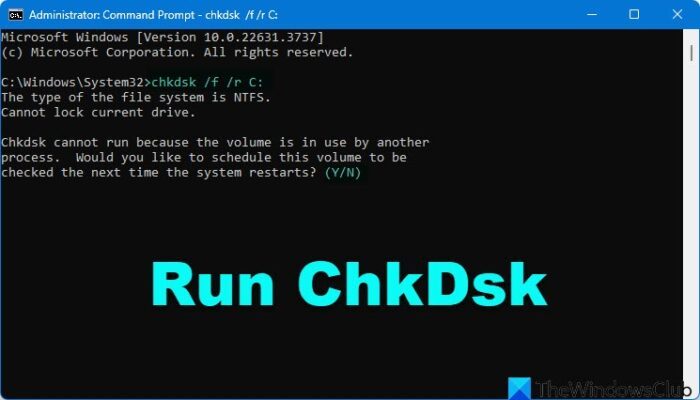
Run ChkDsk and see if it helps.
All the best.
What is icon cache and why does clearing it help?
The icon cache is a copy of the icon of a file. It tells the type of the file. The icon cache is the reason the icon image appears quickly upon opening the folder. If the icon case is corrupt, the icon image could be generic, making it difficult to distinguish the icon.
Clearing the icon cache and rebooting the system would rebuild the icon cache. This way, the icons would be visible, and you would be able to find your file.
Why are files hidden and why should you unhide them?
Important system files that should not be modified or deleted are usually hidden in Windows 11. However, third-party software products also hide lots of files in a system. If such a situation happens, then you wouldn’t be able to view files which are important but not system files. You can use the File Explorer option to unhide the files.
When you unhide files in the File Explorer, the changes are replicated across all folders in the system. This means you can easily find hidden files even if it isn’t in the folder you are currently checking.